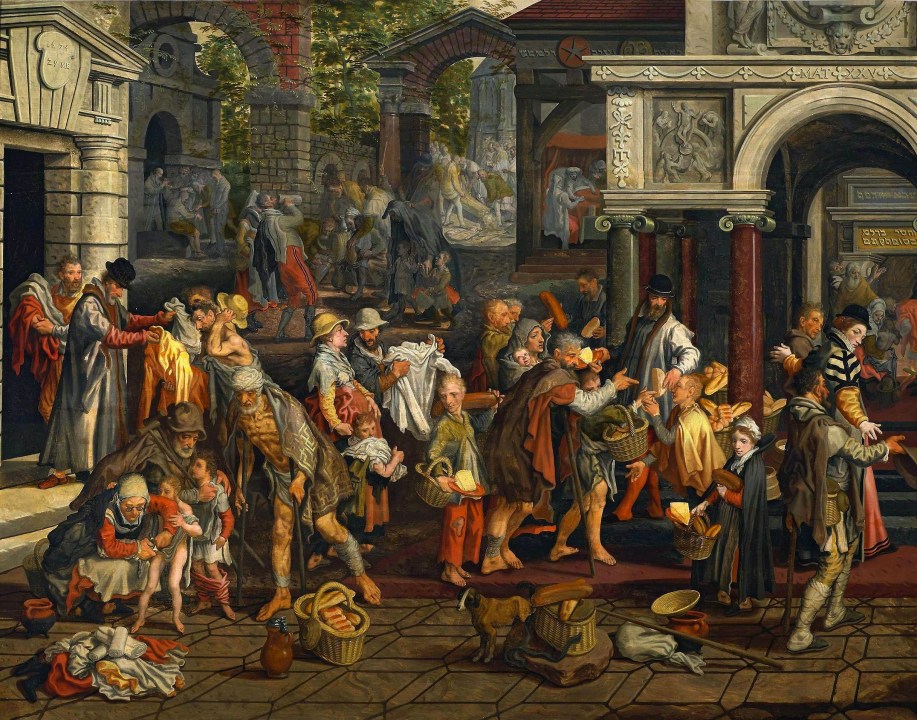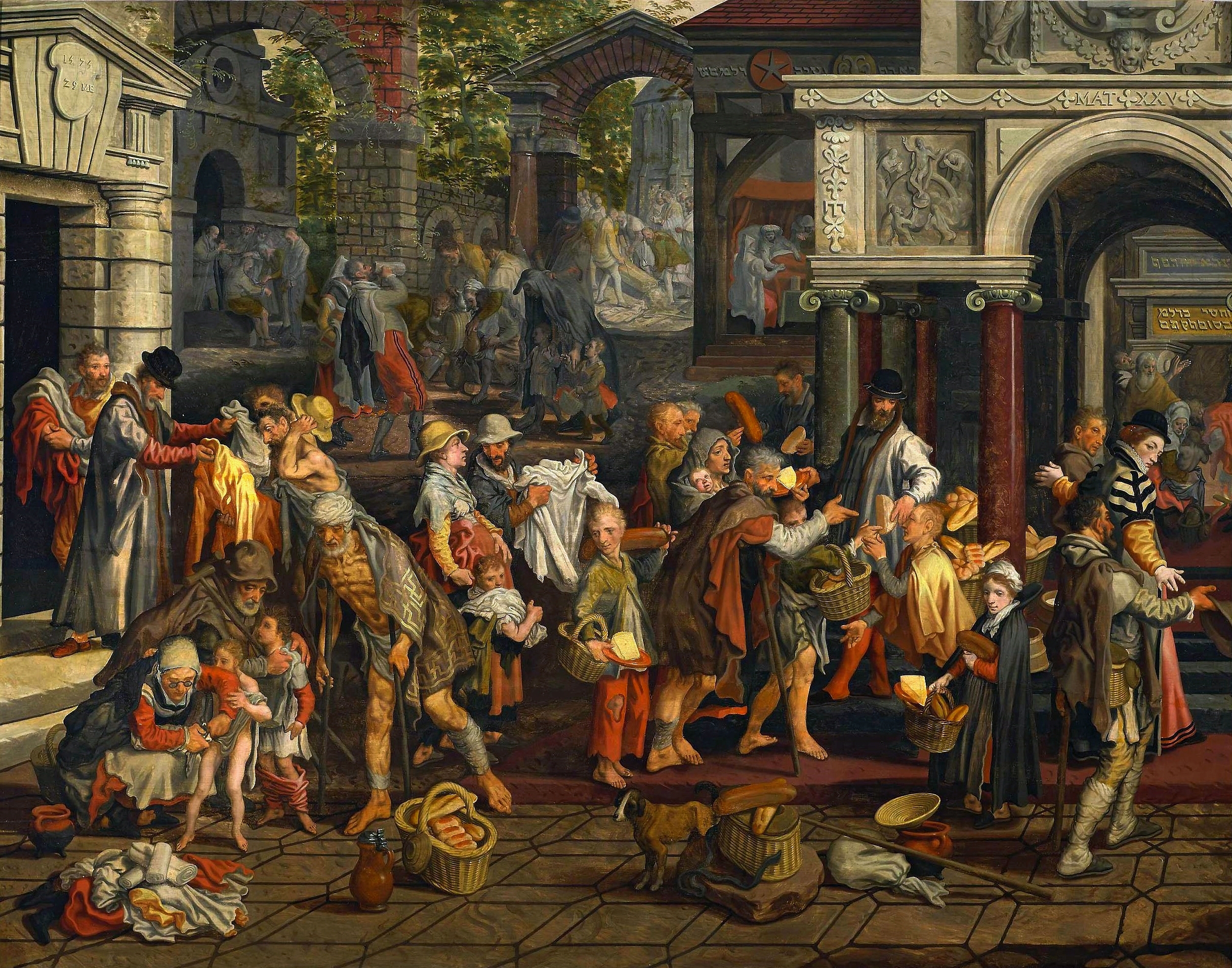As normal life rapidly shuts up shop around us, there’s a need to salvage something positive from the chaos. So perhaps there’s a good story yet to be written about that oldest but most unfashionable of virtues, charity. Before you roll your eyes, I am not saying that, in a time of such sudden and sharp economic downturn, we must dig deep into our pockets to help those struggling more than us. That’s admirable behaviour at any time, and if it’s still an option for you, all power to your elbow. Instead, I have in mind those businesses and entrepreneurs that – by virtue of this sudden inversion of human behaviour – now find their profits soaring. Some would say this is just the rough-and-tumble of capitalism; others will say that money made in a crisis feels dirtier in the hand than that won in the calm waters of peacetime consumerism.
To talk about ‘winners’ in a context of loss is crude. But there are inevitably certain businesses seeing a huge spike in demand, especially in the virtual retail and home-entertainment market. For many such companies, the sudden uptick was never part of the business plan. Then there are those sectors where their income is undisturbed – by subscription or contract – but enforced closures create the paradoxical mix of plummeting overheads and soaring profits. Meanwhile, however, there are also countless smaller businesses, community groups, clubs and charities whose day-to-day activity is hampered by capital shortfall. Whatever governmental aid may come, it cannot cover every aspect of daily life. There is a rapidly increasing number of foodbanks failing to meet the demand, as families suddenly find their zero-hour contracts or self-employed work drying up.
So there has been no better time for establishing a national hardship fund – an indefinitely large pot to be filled by philanthropic charity. I have no clever solution about exactly where money should go first, or who should be the chief arbiter to decide where the priorities lie. But I do have confidence that a large, governmentally-endorsed fund for charitable donations could be set up, regulated and devolved in a swift and transformative fashion. The strapline would be that any sum, however trifling or titanic, from citizen or company, would save not just livelihoods but lives.
Almost a century ago, The Spectator – or rather its readers – adopted a whole Welsh town during the depression of the late 1920s
Some questions, then, to get the ball rolling. What of the stores that have allowed panic buying to happen under their noses? Are all such profits to be coyly pocketed? What do their owners and shareholders reflect upon as unexpected profits pour in from, say, the unusually sought-after multi-ply toilet roll? Or from the nation’s sudden obsession with supermarket-basic penne and farfalle? Does Ocado wonder about its obligations when the country calls upon it like never before?
What is the top-flight footballer currently reflecting on, as hundreds of thousands pour into the account each week without a ball being competitively kicked? While his club struggles along with no gate receipts and a total collapse in hospitality revenue, perhaps he will find time to think about that big charitable endeavour he never quite got round to making? What, for that matter, will occupy Gary Lineker’s mind on those idle Saturdays should he continue to receive the £50,000 or so hypothecated for each Match of the Day episode that doesn’t air?
What, come to think of it, is Jeff Fairburn up to, that ex-chief exec of occasional house-builders Persimmon, who secured a bonus of £75 million for his four-month tenure? Perhaps he is finding time to Google Jack Ma, the billionaire founder of Alibaba, who has pledged 100,000 facemasks and 20,000 tests to Africa, conscious that a direct intervention will be swifter and more effective than anything routed through less efficient bodies? Jeff Bezos, too, looks likely to put Amazon to better work.
Historically, the UK has been a good citizen in charitable giving: with two-thirds of the populace finding something spare for charity, we usually end up in the world’s top five nations. But the appeal drops off as the wealth climbs high: the Sunday Times Giving List reported last year that only 72 of the 1,000 wealthiest people in Britain donated more than 1 per cent of their wealth to charity. Another study revealed that, of those with more than £10 million in investable assets, only 10 per cent give to charity, which means that their annual donation amounts to the perverse sum of £240 per head.
If this sounds like a homily (at a time when churches have had to shut their doors for the first time in 807 years), that only highlights the selfish egoism of 2020 Britain. This is not a religious issue, nor a matter of left or right-leaning politics, nor of Millennial or Boomer worldviews. It is a simple matter of conscience. If money can help, and you have it aplenty, try putting it in better hands. There are heroic philanthropists in our midst who are yet to be given their full due: try looking up Jonathan Ruffer, David Harding, the de Botton family and Lord Sainsbury. Their civic and cultural benevolence only flags up the miserliness of their brethren.
With great wealth should come great responsibility. Richesse oblige, if you will. Almost a century ago, The Spectator – or rather its readers – adopted a whole Welsh town during the depression of the late 1920s: the mining community of Aberdare was kept afloat by the goodwill of concerned strangers. We’re unlikely to see a fully-fledged renaissance of Victorian philanthropism – of the age of Angela Burdett-Coutts, Edward Cecil Guinness, Joseph Rowntree or Thomas Holloway. But it’s not for want of funds.
Global crises scarcely ever happen off the silver screen. But when a culture that has always been in our midst comes under fire, unimaginable gifts emerge – as when Notre Dame literally was on fire. Now that a pandemic is ablaze, ravaging the fabric of daily life, let’s see who can set politics aside and step up to the offertory plate.
David Butterfield is a Fellow of Queens' College, Cambridge, and the author of 10,000 Not Out: The History of The Spectator 1828 - 2020 to be published in April







Comments